As part of an initiative led by the cultural services of the French Embassy in Canada, coordinated by Alliance Française de Vancouver in partnership with Xn Québec, Québec/Canada XR is proposing a series of portraits of the XR industry in Canada.
Through this series of portraits which discuss the history and vision of these companies, discover the talents behind the studios listed in Québec/Canada XR’s Living database of XR in Canada.
This first profile focuses on Couzin Films, which produced one of the first Canada-France virtual reality co-productions: THE PASSENGERS.

Company Profile: Riding the Wave of Technology
Ziad Touma founded Couzin Films in Montreal in 1999, with the mandate to produce high-quality audiovisual content, combining cultural diversity, social reflection, artistic innovation, and commercial potential. Active first and foremost in the field of film and television, the company has also been operating in the world of interactive and immersive media for two decades now. It has produced projects ranging from cinema to artificial intelligence, and including interactive web projects such as the website for the film Saved by the Belles (2003), co-produced with BlueSponge (Grand Prix Boomerang en Arts & Culture and nominated for the SXSW Awards), the development of a mobile application (Cell-la-vie) and the alternate reality game Le judas (co-produced with Kngfu for Radio-Canada). From multimedia to new media, and finally to XR with THE PASSENGERS, Couzin Films has been able to follow the technological curve.
Himself producer, director and screenwriter, Ziad Touma says that his company was born out of a desire to make his own productions, but that this passion quickly expanded:
I was so excited about the production process that I wanted to support other filmmakers in their efforts. So I opened the door to work in development and production with other creators.
Ziad Touma
Always on the lookout, Ziad explains that he has paid close attention the evolution of technologies over the years. Naturally, this has also asked him to follow the changes in funding portfolios which, in Canada, have been putting an emphasis on technological innovation for some time. Such is the case with the Canada Media Fund and its Experimental Stream, which “encourages the development of interactive digital media content and software applications that are innovative and leading-edge.” (Source: CMF). It is within this program in particular that THE PASSENGERS found its funding in Canada, with the French portion coming mainly from the CNC, as well as Région Occitanie, via the French co-producer Les Produits Frais (Oriane Hurard).
A new canvas
For Ziad, each platform is a new canvas: each presents particular challenges, as well as unique affordances. “By working in each of these mediums,” he says, “I get to know a different approach to managing creativity, but also funding, challenges and work practices that are different from one environment to the next.”
I like to pollinate each of the mediums I work in. It allows you to learn the advantages and disadvantages of each one. I find it fascinating to be able to take the best of each context and to find the ideal way to work.
Ziad Touma
“What I really like,” Ziad summarizes, “is the process of invention or reinvention. Innovating means making something new, whether in terms of content or form, regardless of the medium. XR allows us to do that!” Despite this constant concern for reinvention, one thing does not change: It is the strength of the narrative that counts, regardless of the tool used. “The common point of all our projects remains the very essence of the story, themes, character development, dramatic turns, tone, dialogues, and so on,” the producer explains.
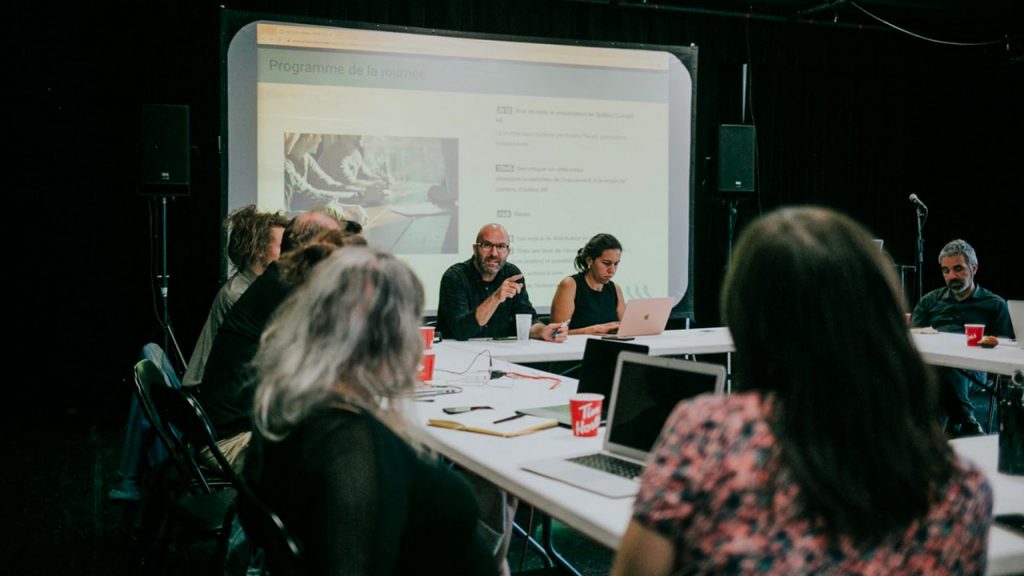
Agnostic in the face of different media or technologies, Ziad prefers the term storyteller which, unlike the titles of filmmaker or videographer, is not rooted in a particular medium or platform. “I prefer to think that we are content creators or storytellers looking to reach audiences, regardless of the platform,” he tells us.
After all, the goal remains that of moving people in multiple ways, confronting them with different points of view to make them think about their own existence.
Ziad Touma
THE PASSENGERS: The experience of a Canada-France co-production in XR
THE PASSENGERS is an episodic, first-person virtual reality experience centred on four characters who travel on a train. Each episode has us see the same journey from the point of view of a different character, each with an aesthetic of its own: She (watercolour), Him (oil painting), the Child (felt) and the Lady (chalk). The user is invited to change the course of each character’s story with their gaze, their voice and their gestures. The first two episodes (She and Him) were presented in competition at the NewImages festival in Paris and at Montreal’s Festival du Nouveau Cinéma in the fall of 2020, then at SXSW in March 2021. For its part, the episode that features the child (the third part of the series) just had its world premiere at the Tribeca film festival, both in New York and in the Museum of Other Realities as part of the XR3 partnership.
Enter the thoughts of one of THE PASSENGERS travelling on a train, and help them face a pivotal moment in their lives.
It was on the occasion of the Tous Écrans festival in Geneva (the ancestor of the GIFF) where they were both jurors in the “Digital and Interactive Experiences” competition that yako (Jean-Christophe Yacono) and Camille Duvelleroy had the original idea that inspired THE PASSENGERS. Accompanied by Nicolas Peufaillit, co-writer of Un Prophète (Jacques Audiard, 2009), the two creators began to imagine what went on in the heads of passengers during long train journeys. Before he returned to Quebec to present the idea to Ziad Touma, yako met Oriane Hurard, who was then working at the festival. We now know her as co-producer of the project. Thus, from the very beginning, THE PASSENGERS was the result of a natural collaboration between Canada and France. “When yako entrusted me with the project, it was already a real organic co-production,” explains the founder of Couzin Films.
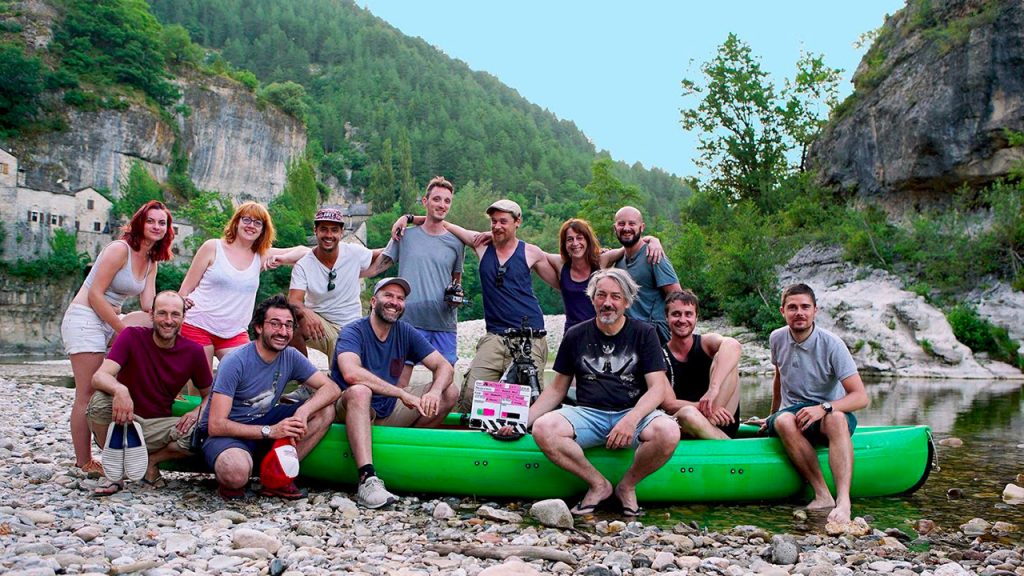
Co-produced by Couzin Films and Les Produits Frais, THE PASSENGERS received financial support for its production from the CMF, the CNC, SODEC, as well as Région Occitanie. During the development and prototyping phases, the project also received funding from France Télévisions nouvelles écritures, VIA Rail, Pictanovo, Adami and the Beaumarchais-SACD grant. In addition to this development aid, several studios also contributed to the project in services, including Dpt., Mocaplab and Post-Moderne. Others also participated in the production, including Novelab, Satore Tech, Rümker, and Accordex. After a first stage of development and prototyping (2016-2018), THE PASSENGERS enters the production phase (2019-2021).
In 2016, The Passengers toured a series of development workshops. During the year, the Canadian and French teams met at the Sundance Institute’s New Frontier Story Lab, the Banff Emergence Lab, as well as SODEC’s first-ever Atelier Grand Nord VR (now Atelier Grand Nord XR). From the outset, the project has always been imbued with a collaborative spirit: “Since the beginning, Oriane and I have overseen the project. I went to film in France, and she and Nicolas came for writing meetings in Montreal. We worked together throughout, from the beginning.”
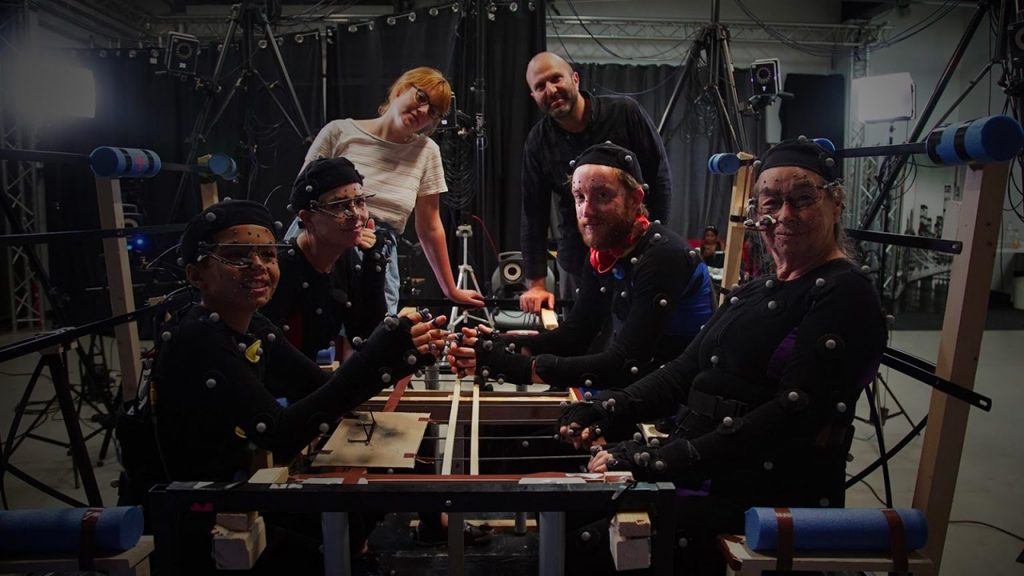
The division of labour and the availability of funding sources led the project across France and across the Atlantic. For instance, due to the support from Pictanovo, a first stage of filming was done in Roubaix at the time of development. Then, it was around Montpellier, with the support of Région Occitanie, that the team went to film the stereoscopic sequences, at which point the motion capture process (with Mocaplab) and the recording of the voice-overs also took place in the Paris region. THE PASSENGERS then returned to Montreal where all the programming, artistic direction, integration, interactivity and the main part of the final production took place at Dpt. Although it has not yet been presented in person, the LBE portion of the experience was designed by Rümker and built by Accordex, both in Montreal.
Challenges and Lessons
In a project like this — to the best of my knowledge, one of the first Canada-France co-productions in XR, after The Enemy (2016-2017) — it’s not just about technological innovation. It was also necessary to invent new funding strategies: “We had to find the funds. We were discovering a business model, marketing; everything is to be invented!” Ziad says.
With a single object, it was necessary to rethink the project and adapt it to the demands of the financial authorities of each country.
Ziad Touma
“What is special,” he adds of the project’s financial package, “is that each fund has its own objectives and its own peculiarities in terms of funding. With a single object, it was necessary to rethink the project and adapt it to the demands of each country’s funding sources.” For a project such as THE PASSENGERS, presented as it was to several funding programs, it was necessary to modify the approach slightly with each funder. Ziad gives as an example the greater interest in technological innovation in the context of the Canada Media Fund, and, on the other hand, the emphasis placed on storytelling by the Centre National du Cinéma et de l’Image Animée, in France. However, despite these changes: “We must ensure that the project remains honest and that these slight adaptations only serve to improve it in the end,” the producer reminds us.
The imperative to adapt the project was also felt in the long process of writing, prototyping and producing THE PASSENGERS. As technology has made exponential advances while the project went through these different stages, it was necessary to ensure a continuous adaptation to new tools and practices.
For Ziad, then, co-production doesn’t just bring money or new distribution territories: “Of course it helps, but it’s not just that.” The interest, he clarifies, “is also to confront the story to different points of view in order to see if it resonates internationally. It’s the same on both sides. We have different sensibilities; different values.” We must therefore ask ourselves: “How can we make something that can reach people beyond its own country?” On this issue, the director explains: “Communication and transparency are the basis of the work. After all, we share the parenthood of the project. All decisions must be taken together. You have to talk to each other all the time. »
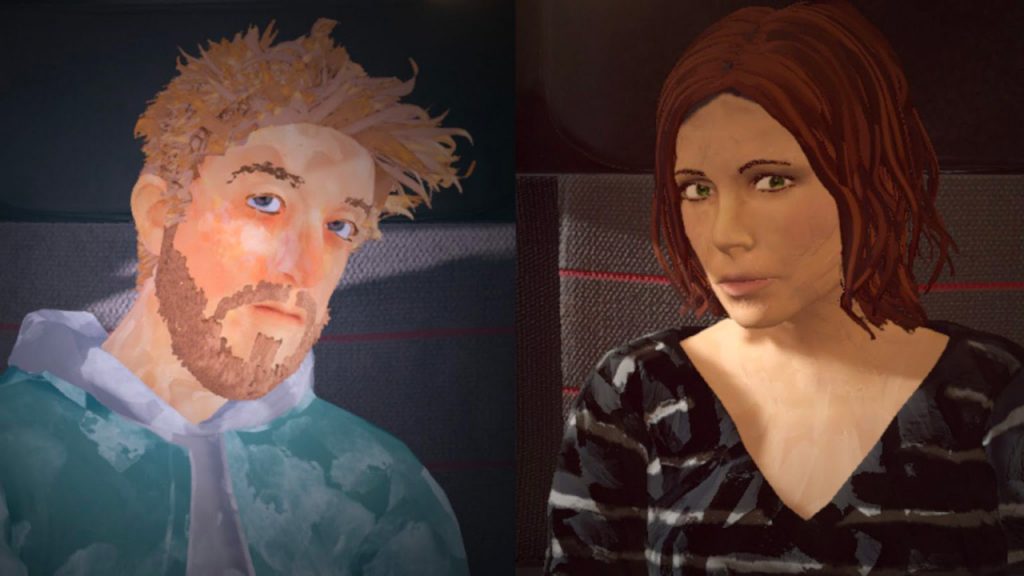
Looking to the future: Fostering co-productions
Now well advanced in his co-production project for THE PASSENGERS, Ziad draws several valuable lessons, as well as a better understanding of good practices for possible future international co-productions. XR works can take a very long time to develop and produce, but the funding and decision-making processes are likewise time-consuming endeavours. Meanwhile, technologies are constantly evolving. It is therefore necessary to find ways to work better and faster, notably by promoting an iterative process.
We also need new and better agreements between our two countries to foster collaboration. Echoing one of the interviewees in Québec/Canada XR’s upcoming Study on XR distribution, the producer explains that: “Our co-production agreements are very old and do not yet recognize digital productions.” Thus, although it is now increasingly common to see the emergence of international co-productions, there is still work to be done to facilitate this process and encourage exchanges. The formal recognition of these co-productions—which are becoming increasingly common in the XR community—would notably open the door to tax credits: an important incentive, even crucial in some cases.
Mapping XR in Canada
Do you want to develop a collaboration with Canada? Discover Canada’s immersive and techno-creative studios by checking out Québec/Canada XR’s living database of XR in Canada.
Your Canadian studio doesn’t appear in the database? Promote your studio, your expertise and your main sectors of activity by filling out the following registration form to benefit from its visibility.
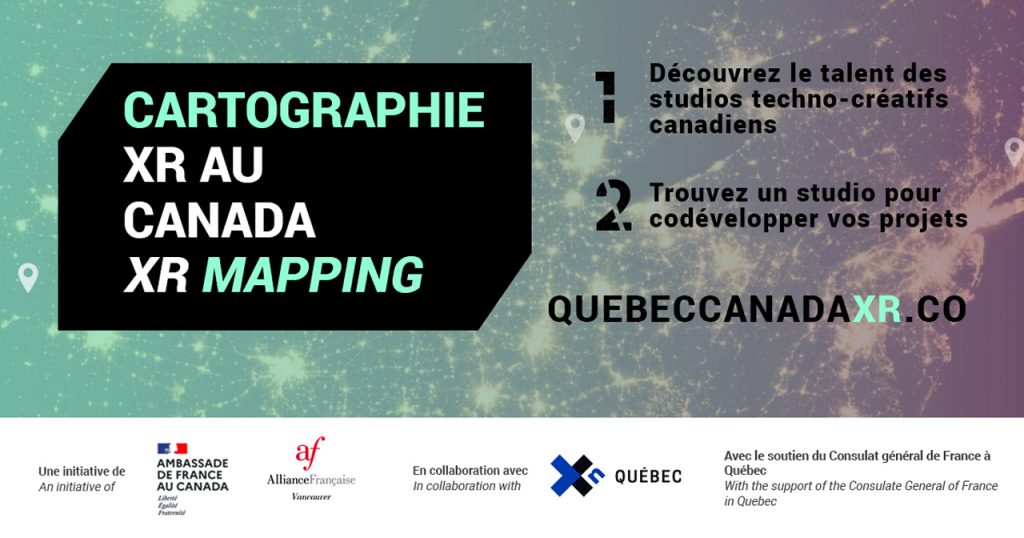
This interview with Ziad Touma (Couzin Films) was conducted by Philippe Bédard (Quebec/Canada XR) on June 9, 2021, at the time of the world premiere of THE PASSENGERS: THE CHILD in Tribeca (June 9-20, 2021).

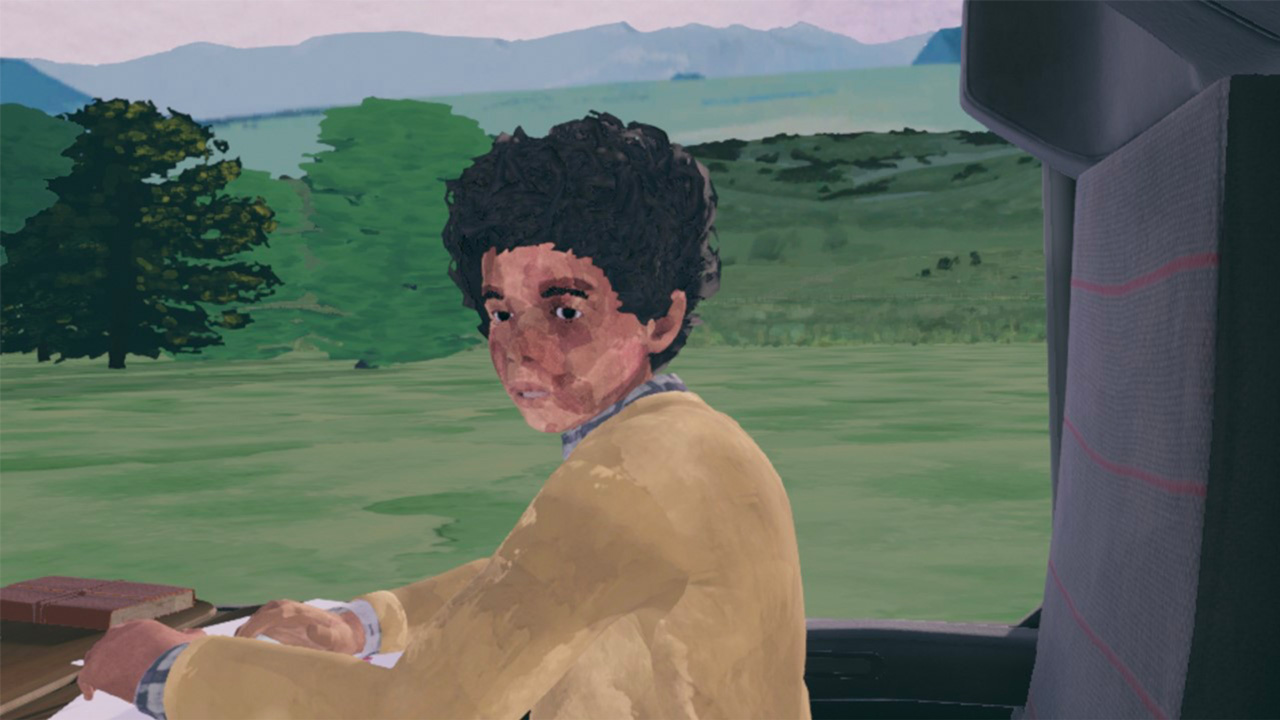

Leave a Reply
You must be logged in to post a comment.